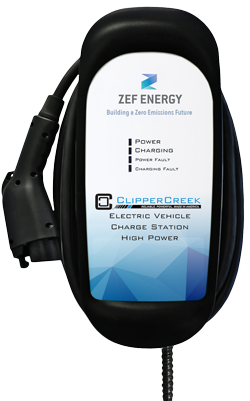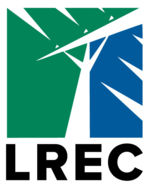Imagine getting home from work, plugging in your electric vehicle, and charging it with the energy produced by your own solar array. Think this sounds like the distant future? It’s already happening in the heart of Minnesota’s lakes country.
Lake Region Electric Cooperative (LREC) is committed to harnessing new technologies to provide our members with the most efficient, economical, and reliable service available. One example of this forward-thinking commitment is the co-op’s new electric vehicle (EV) and solar pilot project. The project will use data to synchronize solar energy with off-peak energy provided through the grid.
As EVs become more plentiful, it could be assumed this trend will benefit electric distribution cooperatives. The reality is that the rising number of EVs on the road can either help or hurt cooperatives, depending on when and how EVs are being charged. For example, if all EV owners on LREC’s system came home from work and plugged in their vehicles at 6 p.m., it would cause a spike in demand that translates into more expensive electricity during a time of peak electric demand.
“We’ve partnered with ZEF Energy to find a way to offer affordable electricity to EV owners, while providing the most benefit to our members as a whole,” explains Dan Husted, LREC’s Vice President of Business Development.
 Lake Region will study data from its southwest facing GoWest solar array and EV charging to understand the best way to coordinate EV charging with peak demand load control. As part of the pilot project, the co-op will collect data about how it charges its own Chevy Bolt electric vehicle. If solar availability, EV charging, and peak demand can be coordinated, the result will be improved stability of the electric grid and more affordable electricity for all co-op members.
Lake Region will study data from its southwest facing GoWest solar array and EV charging to understand the best way to coordinate EV charging with peak demand load control. As part of the pilot project, the co-op will collect data about how it charges its own Chevy Bolt electric vehicle. If solar availability, EV charging, and peak demand can be coordinated, the result will be improved stability of the electric grid and more affordable electricity for all co-op members.
The cooperative will utilize a ZEF Energy Level 2 smart charger during the pilot project. This smart charger provides utilities with the technology to adjust the charger based on electricity demand or time of day. The goal is to use solar energy during the times of the day when it is being generated so it has minimal impact on the grid.
“We want our charger to be a really good grid participant,” says ZEF Energy Founder Matthew Blackler. Solar tracking will provide data about the energy being generated minute by minute. That energy can then be used to smartly charge an electric vehicle.
“If you have an EV, charging in a way that doesn’t negatively impact the cooperative means the cooperative manages to sell more energy across the same infrastructure,” Blackler continues. “This pilot that Lake Region has come up with is beautiful because it addresses beneficial load growth and gives members what they want with more renewable energy and electric vehicles.”
Lake Region also offers electric vehicle owners a way to save money every time they charge their car with a special ChargeWise EV rate. This time-of-use rate allows members to choose what time to charge their car and how much they pay. Learn more about the ChargeWise EV rate and an EV charging station rebate of up to $500 at: www.lrec.coop/products-service/chargewise.
“We want to make sure we offer charging options for our members that make EVs work for them,” says Husted. “We are seeing more and more electric vehicles in our area and we want our members to be able to charge them in a way that is both convenient and economical.”
Interested in checking out LREC’s new Chevy Bolt electric vehicle? Call the co-op at
(800) 552-7658 to schedule a test drive.
 Lake Region Electric Cooperative
Lake Region Electric Cooperative